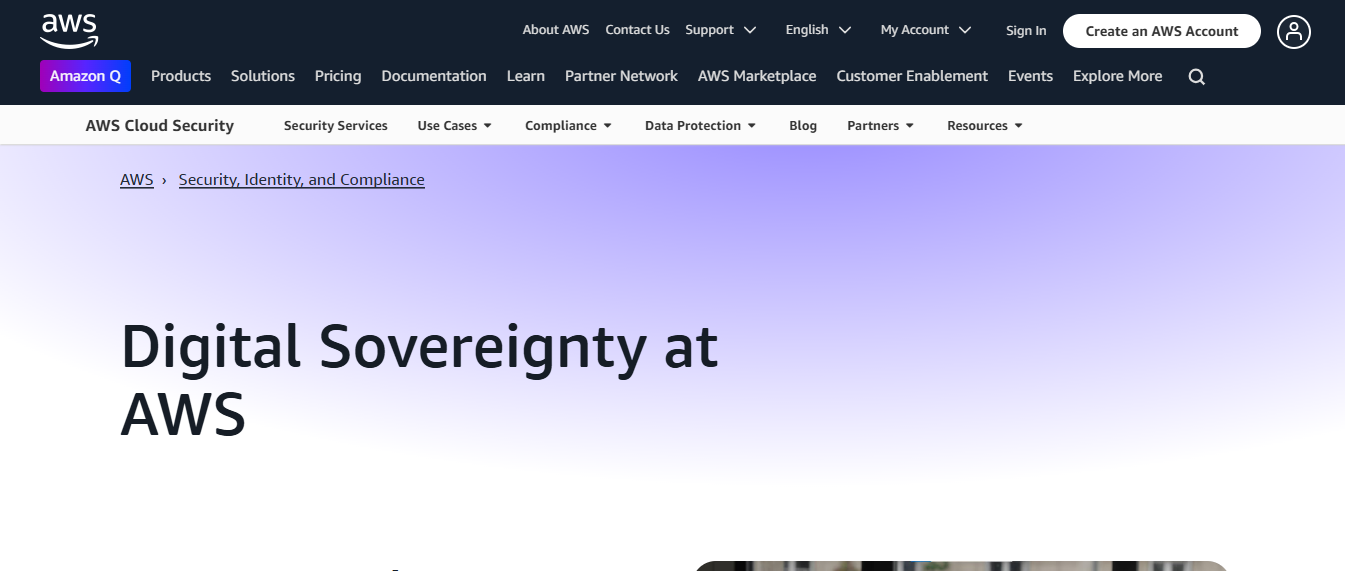

Sign Up
What is best time for the call?
Oops! Something went wrong while submitting the form.

As global data privacy regulations evolve, from GDPR to India’s DPDP Act and China's PIPL, data residency, and sovereignty have become top priorities for IT, legal, and compliance teams. Organizations must ensure that data remains within specific jurisdictions and data access and control comply with local sovereignty laws.
To support this, a new class of software has emerged: Data Residency and Sovereignty Governance Tools. These platforms help businesses enforce location-specific storage, processing, and access policies across cloud environments and SaaS ecosystems.
In this post, we break down the Top 10 Tools in 2025 for managing data sovereignty and residency compliance, evaluating their pricing, licensing models, feature sets, and integration capabilities based on authoritative insights from G2, Gartner, and Forrester.
What is Data Residency & Sovereignty Governance Tools?
Data Residency & Sovereignty Governance Tools help organizations manage data storage and access, ensuring compliance with laws and regulations regarding data protection and sovereignty. These tools help determine the physical location of data storage and implement controls over data access, ensuring it's within specified geographic boundaries.
What are data residency and sovereignty?
Data sovereignty gives governments the legal right to regulate data. Data residency refers to the physical location where data is stored, deciding which government or regional body has sovereignty over it.
What is the concept of data sovereignty?
Data sovereignty refers to the idea that a country or jurisdiction has the authority and right to govern and control the data generated within its borders. It means that the government can regulate the collection, storage, processing, and distribution of data that originates within its territory.
Why Data Residency & Sovereignty Governance Matters?
Data sovereignty tools help you:
Overview: Provides tools for customers to meet data residency requirements across Google Cloud regions, with support for trusted partner frameworks (e.g., T-Systems in Germany).
Gartner Peer Insights: 4.6★
Pros: Deep cloud-native sovereignty controls
Cons: Tied to Google Cloud infrastructure
Screenshot:

Overview: Includes Azure Purview, Compliance Manager, and Azure Information Protection to support data residency and audit requirements.
G2 Score: 4.5★
Pros: End-to-end Microsoft stack integration
Cons: Learning curve for configuration
Screenshot:

Overview: Enables governance over where AWS workloads and data reside with tools like AWS Control Tower and Macie.
Gartner Magic Quadrant Leader (IaaS)
G2 Score: 4.6★
Screenshot:

Overview: A unified data protection and governance platform with strong support for data residency and immutable backups.
G2 Score: 4.7★
Pros: Combines data protection + sovereignty
Cons: Best suited for mid-to-large enterprises
Screenshot:

Overview: Offers centralized data discovery, encryption, and location control across hybrid and multi-cloud environments.
Gartner Peer Insights: 4.5★
G2 Score: 4.6★
Screenshot:

Overview: Box Zones let enterprises choose where to store their content (EU, US, Asia), while Box Governance ensures lifecycle controls.
G2 Score: 4.4★
Pros: Great for legal and compliance use cases
Cons: Content-only scope
Screenshot:

Overview: Real-time data activity monitoring and governance focused on data sovereignty controls.
G2 Score: 4.5★
Pros: Strong analytics and alerts
Cons: Requires tuning for hybrid environments
Screenshot:

Overview: AI-powered data discovery and governance platform built for compliance with data sovereignty laws.
Gartner Peer Insights: 4.5★
G2 Score: 4.6★
Screenshot:

Overview: Specialized platform for enabling in-country data residency by routing SaaS app data through localized nodes.
G2 Score: 4.3★
Pros: Focused solution for app builders
Cons: Requires technical integration
Screenshot:

Overview: Combines consent management with data flow governance and residency mapping.
G2 Score: 4.4★
Pros: Great UX and policy builder
Cons: Requires integration with other tools for complete control
Screenshot:

What is the primary purpose of data sovereignty?
Data sovereignty plays a pivotal role in enhancing national security by allowing countries to control the storage and processing of sensitive information within their borders. It is particularly crucial for safeguarding government documents and critical infrastructure data.
Why is a data residency check important?
It gives enterprises a view into the regions and locations where cloud-based sensitive and regulated data lives. It also helps them understand how data flows in and among cloud locations and Software-as-a-Service (SaaS) applications so that it doesn't end up in the wrong locations or hands.
What is the difference between data residency and data sovereignty?
Data sovereignty is the legal authority to regulate data. For example, the federal government and individual states have this power in the United States. Data residency refers to the physical location where data is stored, determining which government has sovereignty.
What is the key concept of sovereignty?
Sovereignty can generally be defined as supreme authority. Sovereignty entails hierarchy within a state as well as external autonomy for states. In any state, sovereignty is assigned to the person, body, or institution with ultimate authority over other people and to change existing laws.
Is data governance the same as data privacy?
Data governance involves implementing security measures to protect data at rest, in transit, and during processing. Encryption, secure data storage, and data masking are security practices that safeguard data privacy.
Data residency is no longer optional; it’s a legal imperative. As regulatory frameworks expand globally, organizations must invest in the right governance tools to ensure secure, compliant, and sovereign control of their sensitive data.
Stay Compliant with CloudNuro.ai
While the tools above govern where data lives, CloudNuro.ai helps you govern how it's used across your SaaS stack. It complements data sovereignty platforms by offering the following:
👉 Book a Demo to see how CloudNuro can enhance your data sovereignty and SaaS compliance strategy.
Request a no cost, no obligation free assessment —just 15 minutes to savings!
Get StartedAs global data privacy regulations evolve, from GDPR to India’s DPDP Act and China's PIPL, data residency, and sovereignty have become top priorities for IT, legal, and compliance teams. Organizations must ensure that data remains within specific jurisdictions and data access and control comply with local sovereignty laws.
To support this, a new class of software has emerged: Data Residency and Sovereignty Governance Tools. These platforms help businesses enforce location-specific storage, processing, and access policies across cloud environments and SaaS ecosystems.
In this post, we break down the Top 10 Tools in 2025 for managing data sovereignty and residency compliance, evaluating their pricing, licensing models, feature sets, and integration capabilities based on authoritative insights from G2, Gartner, and Forrester.
What is Data Residency & Sovereignty Governance Tools?
Data Residency & Sovereignty Governance Tools help organizations manage data storage and access, ensuring compliance with laws and regulations regarding data protection and sovereignty. These tools help determine the physical location of data storage and implement controls over data access, ensuring it's within specified geographic boundaries.
What are data residency and sovereignty?
Data sovereignty gives governments the legal right to regulate data. Data residency refers to the physical location where data is stored, deciding which government or regional body has sovereignty over it.
What is the concept of data sovereignty?
Data sovereignty refers to the idea that a country or jurisdiction has the authority and right to govern and control the data generated within its borders. It means that the government can regulate the collection, storage, processing, and distribution of data that originates within its territory.
Why Data Residency & Sovereignty Governance Matters?
Data sovereignty tools help you:
Overview: Provides tools for customers to meet data residency requirements across Google Cloud regions, with support for trusted partner frameworks (e.g., T-Systems in Germany).
Gartner Peer Insights: 4.6★
Pros: Deep cloud-native sovereignty controls
Cons: Tied to Google Cloud infrastructure
Screenshot:

Overview: Includes Azure Purview, Compliance Manager, and Azure Information Protection to support data residency and audit requirements.
G2 Score: 4.5★
Pros: End-to-end Microsoft stack integration
Cons: Learning curve for configuration
Screenshot:

Overview: Enables governance over where AWS workloads and data reside with tools like AWS Control Tower and Macie.
Gartner Magic Quadrant Leader (IaaS)
G2 Score: 4.6★
Screenshot:

Overview: A unified data protection and governance platform with strong support for data residency and immutable backups.
G2 Score: 4.7★
Pros: Combines data protection + sovereignty
Cons: Best suited for mid-to-large enterprises
Screenshot:

Overview: Offers centralized data discovery, encryption, and location control across hybrid and multi-cloud environments.
Gartner Peer Insights: 4.5★
G2 Score: 4.6★
Screenshot:

Overview: Box Zones let enterprises choose where to store their content (EU, US, Asia), while Box Governance ensures lifecycle controls.
G2 Score: 4.4★
Pros: Great for legal and compliance use cases
Cons: Content-only scope
Screenshot:

Overview: Real-time data activity monitoring and governance focused on data sovereignty controls.
G2 Score: 4.5★
Pros: Strong analytics and alerts
Cons: Requires tuning for hybrid environments
Screenshot:

Overview: AI-powered data discovery and governance platform built for compliance with data sovereignty laws.
Gartner Peer Insights: 4.5★
G2 Score: 4.6★
Screenshot:

Overview: Specialized platform for enabling in-country data residency by routing SaaS app data through localized nodes.
G2 Score: 4.3★
Pros: Focused solution for app builders
Cons: Requires technical integration
Screenshot:

Overview: Combines consent management with data flow governance and residency mapping.
G2 Score: 4.4★
Pros: Great UX and policy builder
Cons: Requires integration with other tools for complete control
Screenshot:

What is the primary purpose of data sovereignty?
Data sovereignty plays a pivotal role in enhancing national security by allowing countries to control the storage and processing of sensitive information within their borders. It is particularly crucial for safeguarding government documents and critical infrastructure data.
Why is a data residency check important?
It gives enterprises a view into the regions and locations where cloud-based sensitive and regulated data lives. It also helps them understand how data flows in and among cloud locations and Software-as-a-Service (SaaS) applications so that it doesn't end up in the wrong locations or hands.
What is the difference between data residency and data sovereignty?
Data sovereignty is the legal authority to regulate data. For example, the federal government and individual states have this power in the United States. Data residency refers to the physical location where data is stored, determining which government has sovereignty.
What is the key concept of sovereignty?
Sovereignty can generally be defined as supreme authority. Sovereignty entails hierarchy within a state as well as external autonomy for states. In any state, sovereignty is assigned to the person, body, or institution with ultimate authority over other people and to change existing laws.
Is data governance the same as data privacy?
Data governance involves implementing security measures to protect data at rest, in transit, and during processing. Encryption, secure data storage, and data masking are security practices that safeguard data privacy.
Data residency is no longer optional; it’s a legal imperative. As regulatory frameworks expand globally, organizations must invest in the right governance tools to ensure secure, compliant, and sovereign control of their sensitive data.
Stay Compliant with CloudNuro.ai
While the tools above govern where data lives, CloudNuro.ai helps you govern how it's used across your SaaS stack. It complements data sovereignty platforms by offering the following:
👉 Book a Demo to see how CloudNuro can enhance your data sovereignty and SaaS compliance strategy.
Request a no cost, no obligation free assessment - just 15 minutes to savings!
Get StartedWe're offering complimentary ServiceNow license assessments to only 25 enterprises this quarter who want to unlock immediate savings without disrupting operations.
Get Free AssessmentGet Started

Recognized Leader in SaaS Management Platforms by Info-Tech SoftwareReviews
